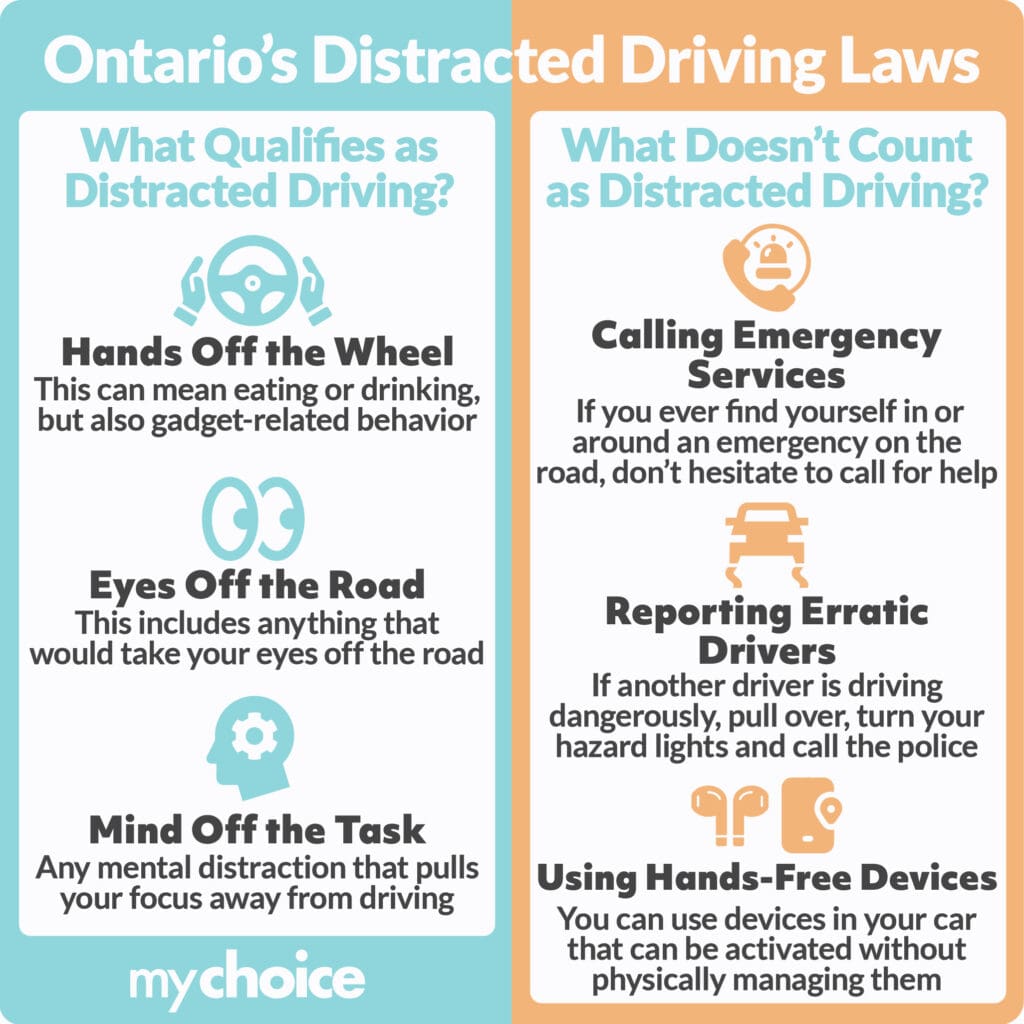Distracted driving can be dangerous to everyone involved – so Ontario’s local laws prohibit talking on the phone, texting, typing, or writing emails while driving to avoid any untoward accidents. But what happens if you’re found texting on the road, or if there’s an emergency and you need to use your phone? Luckily, it can be highly situational.
But beyond this, there is so much to know about what counts as distracted driving and when you’re actually allowed to legally use your phone on the road. Together, let’s dive into the specifics of Ontario’s do’s and don’ts on the road.

What Qualifies as Distracted Driving?
According to Ontario’s Highway Traffic Act (HTA) Reg. 78.1(1), here’s what counts as distracted driving:
With all of this in mind, texting on the road is considered one of the biggest issues because it covers all three types of distractions: with your hands on the phone, eyes on the screen, and mind busy crafting a response or choosing the right emoji.
What Doesn’t Count as Distracted Driving?
Not every instance of using a device on the road will get you in trouble. In fact, there are situations where it can help you and everyone around you. Here’s when you’re allowed to interact with phones or screens while on the road.
Distracted Driving Penalties
If you get caught for distracted driving, you’ll be slapped with a few fines and penalties that get more severe if you’re a repeat offender. Here’s a quick fact sheet detailing potential penalties.
How to Avoid Distracted Driving
- Put your phone away: Keep your phone out of reach to resist the temptation to check messages or notifications. Use “Do Not Disturb” mode while driving to minimize distractions.
- Plan ahead: Set up your GPS, music, and anything else you might need before you start driving. This way, you won’t need to fumble with your devices on the go.
- Avoid multitasking: Driving is your top priority. Don’t try to eat, apply makeup, or perform any other tasks while behind the wheel.
- Take breaks, if needed: If you’re feeling tired or distracted, pull over safely and take a short break. A few minutes of rest can help you refocus.
- Stay calm and focused: Stress or strong emotions can take your mind off the road. Try deep breathing or playing calming music to keep yourself relaxed while driving.
Key Advice from MyChoice
- Double and triple-check everything in your car (including potentially faulty hardware) before leaving your home or parking lot to avoid needing to fiddle with things on the road
- Stay vigilant and only pull over when it’s safe to before making any emergency calls
- Take care of yourself both on and off the road, since feeling physically suboptimal will impact your focus








